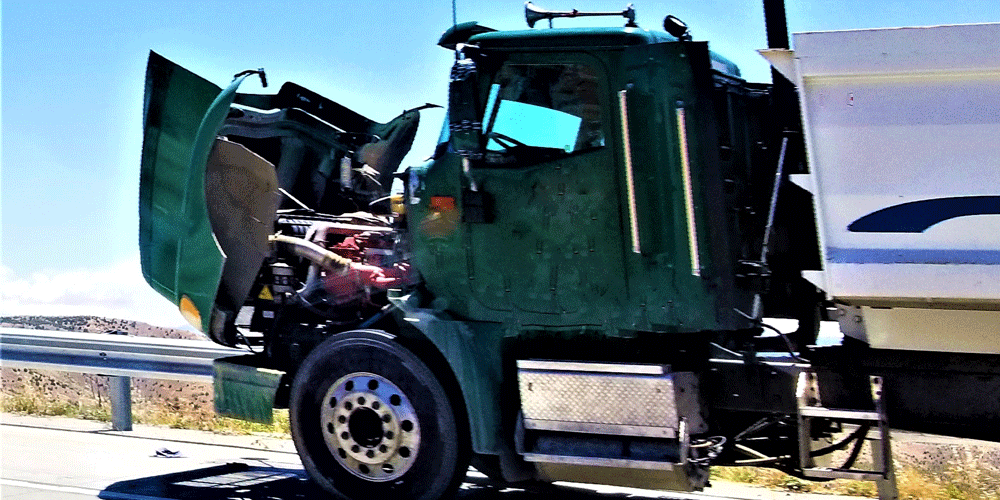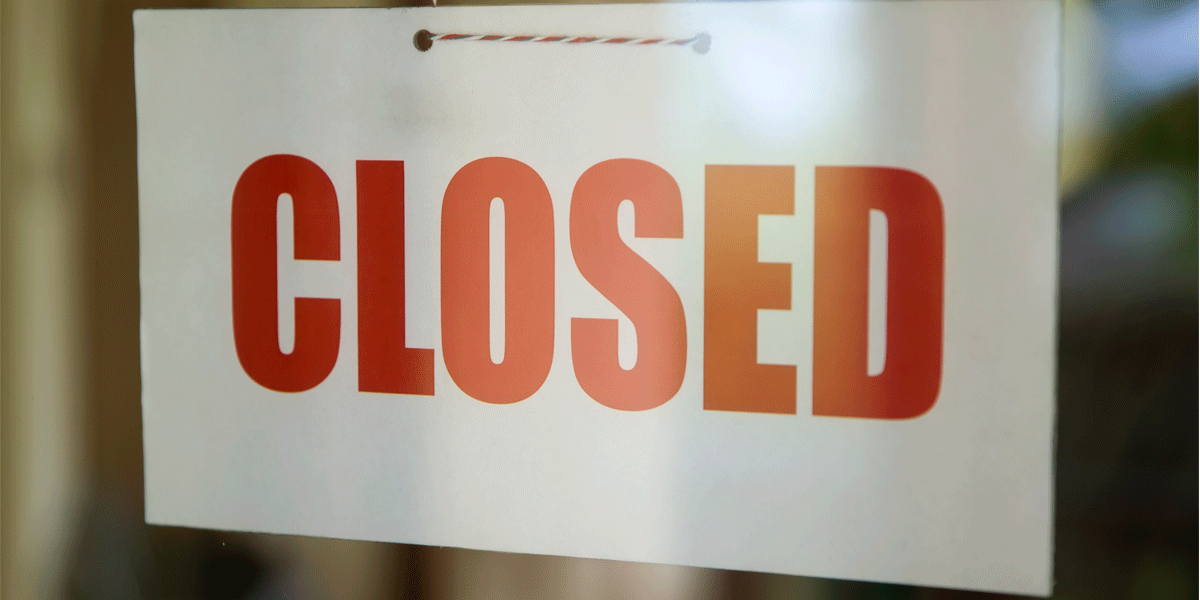Samantha joined the Anderson Trucking Family in November of 2012 as a specialized driver manager and managed a fleet of mixed company and contractor drivers. In the spring of 2014, she transitioned to the driver administration department and began working in contractor services. While in contractor services, Samantha familiarized herself with all processes, procedures and information in regards to driver contracts, pay and settlements. She is currently the operations support manager and oversees both the contractor services department as well as the driver settlement department and leads both of her teams to ensure our drivers receive the highest level of service required to help navigate their accounts and settlements on a daily basis.
The trucking industry is starting to feel like a bad game of Monopoly. A few bad investments and you owe everyone money. The moment you get paid, you’re immediately paying someone else. You don’t get to go home, you can’t pass go.
It’s a game you can’t get out of — and believe me, everyone in the transportation industry is frustrated by this game.
It’s easy to feel like you’re playing for the wrong team (your trucking company), but truthfully, the game is rigged for everyone right now. The truth is, everyone in transportation is struggling in one way or another.
BUT.
How do you know if your company is just going through the normal ups and downs of the trucking industry or if they’re about to lose the game entirely?
Let me break it down for you (and no, I don’t mean I’m about to start rapping or beatboxing). The current landscape is such that trucking companies are seemingly closing left and right. While some weren’t unexpected (Yellow was struggling for years), others have come as more of a shock.
One of the last things you probably want as a truck driver is to be suddenly out of a job because your company filed bankruptcy and left you out in the cold with no way to get home.
Here at Anderson Trucking Service (ATS), we’re a stable, family-owned, and debt-free company. Something we focus on here more than anything is financial stability. By doing this, we’ve been able to navigate the current market somewhat smoothly. Driver layoffs and pay cuts aren’t something you’ll have to worry about at ATS.
In this article, we’ll help you understand the seven signs your company may be in financial trouble.
7 Signs of Financial Trouble in Trucking
This article isn’t designed to make you suspicious of your trucking company, but some signs of financial instability are out in the open. Your trucking company isn’t likely to actually tell you they’re struggling and about to file bankruptcy or close, so it can be good to keep these signs in mind.
Sign #1: You’re Not Getting Paid
Take a look at your end-of-year earnings for 2023 and compare them to the years prior. Now that it’s tax season, this should be readily available to you right now.
Your 2023 numbers are more likely than not a lot lower than they were in 2020 and 2021, right?
The common misconception drivers have is that, because their paychecks are lower than they were a year or two ago, their company is about to close. That’s less a reflection of the trucking company and more a reflection of the trucking industry as a whole.
By now, you probably know that less freight is moving but a lot of drivers haven’t left the industry. Similarly, freight rates are lower now than they’ve been in years. That’s a recipe for less money.
Now take a look at your work agreement or contract you signed when you began working for the trucking company. What was the rate of pay? Whether you were to be paid cents-per-mile (CPM) or percentage, pay attention to that number.
Now look at your last paycheck. Are you being paid that rate (or higher)? If yes, the reason you’re making less money now is largely due to the market. If not, you’ve got one giant red flag in front of you — and the red flag is a trucking company in financial stress.
If your company is failing to uphold contractual and pay obligations, that’s a problem. What does that look like for you? The company may not be paying you on time (if at all). Your pay frequency may decrease.
For example, if you’re signed up for a daily pay program, they may step it back and start paying you every few days instead. If you’re supposed to get weekly pay, you might get paid every other week. They may split your pay and pay you half of your check one week and half the rest.
You could also see a decrease in your pay rate. For instance, if you signed on at 55 CPM or 65 percent of the load and you suddenly and without notice started getting a lower rate, that’s a problem.
It’s problematic if they constantly change the pay. It’s a red flag if they’re making it difficult to understand how the pay program works so that it’s difficult to tell if you’re being paid incorrectly.
As long as you’re meeting your contractual obligations and completing all the requirements to get paid on time (such as turning in accurate paperwork in a timely fashion), you shouldn’t be getting paid late.
It’s important for a carrier to closely follow contractual obligations and follow through on the expectations they presented to the driver when they signed on with the company. (There are laws in place for this, after all.)
Similarly, if your paycheck doesn’t cash or your fuel card stops working, that’s a surefire sign that something is wrong RIGHT NOW.
One thing to note: Sometimes companies reduce pay to adjust to current market conditions. If this happens, they usually grandfather drivers into their current pay program. Only new drivers would see the pay decrease. This shouldn’t be taken as a red flag, but rather a result of market conditions.

Sign #2: You Start to See Layoffs
If you see layoffs or a "hiring freeze," that’s a surefire sign that financial trouble is brewing. Typically, when a company is facing financial strain, they’ll begin to lay people off or they’ll go on a hiring freeze both with internal employees and drivers. They also won't pursue new driving contracts with independent contractors.
For example, if you see a company that had 15 to 20 open office positions posted and then they’re suddenly gone, that may be because they can’t afford to hire those people anymore.
Please note: This is very different from companies that stop hiring out of certain regions.
Sign #3: The Company is Losing Customers
If you were to look at companies that historically didn’t make it through tough markets, you’ll see that one of their downfalls was that they started to lose customers. This is due in large part to service failures.
Service failures may be caused by a driver force that simply isn’t meeting deadlines (for a number of reasons, one of them being equipment failure out of their control) or a trucking company that doesn’t have enough drivers to service the customer.
Oftentimes, service failures are a result of failed retention attempts. Companies will lose qualified drivers because they aren’t paying market value or respecting their drivers. It can easily be a domino effect of a couple of drivers leaving which leads to a mass exodus spiraling out of control.
You might wonder how you can tell that the company is losing customers. It’s not just a matter of less freight, as we’re seeing fewer loads per driver in today’s market. (If you are concerned about fewer miles, however, you can speak to other drivers on the fleet. Are they noticing a sudden decrease in miles too?)
It’s easier to tell when companies that haul the same type of commodities are losing customers. For instance, if your company primarily hauls lumber, you’ll probably be picking up and delivering to warehouses and work sites. If these routes are suddenly no longer available or you’re seeing less and less of them, it’s probably because the company lost those customers.
It’s much more difficult to spot this if you’re working for a carrier with a diverse range of freight.
If your company is publicly traded, take a look at their quarterly earnings. Take a look at their stocks. Are they up or down? Are people buying or selling shares? Did they report a loss? These details will paint a picture that provides you clarity on their financial stability.
You can’t see all these details with a private carrier, unfortunately.
Sign #4: Unionized Drivers are Striking
Some (but not all) trucking companies are unionized. If you’re part of a union, contract negotiations will reveal a lot about the carrier’s financial status.
If your carrier can’t agree to contract negotiations, it’s often because they can’t handle the list of requests financially or administratively. As a result, drivers end up striking, leaving the carrier, or quitting trucking. Oftentimes, this causes the carrier to lose customers too.
This is such a strong predictor of financial duress because more often than not unions are negotiating for better pay and benefits or more home time and better equipment.
When a lot of drivers start to leave and it’s not for retirement — especially long-tenured, good drivers — it’s often because the company is going downhill financially.

Sign #5: They Can’t Afford to Replace Equipment
Ever seen junky, unfixed trucks on the road? Maybe the door is painted a different color because it was in an accident and the company didn’t want to repaint it? Cosmetic things like this (that don’t affect the safe operation of the truck) can be a result of financial problems.
Your company may be struggling financially if they can’t purchase new trucks. This is a tricky sign, so you need to have a good idea of the tractor and trailer replacement cycle within your company.
You see, it was very difficult to replace trucks during and immediately following the pandemic. Some companies are still playing catch-up and trying to replace tractors and trailers past their prime.
This is no more evident than when you have a catastrophic truck failure but the company can’t get you into a replacement truck (temporary or otherwise). Instead, they’ll force you into a month or two of downtime while they complete the repair. They simply can’t afford to get you into a new truck.
Sign #6: Lack of Communication
Historically speaking, the companies that have filed for bankruptcy and closed in the past started distancing themselves from employees and drivers when the financials started to go south.
If your company typically communicates weekly, monthly, or quarterly and suddenly stops, it might be cause for concern.
When they start the process of distancing themselves and communication stops, they in turn stop the relationship from continuing to build. Long-term goals are thrown out the window and they might start making random, spur-of-the-moment decisions instead.
They instead trigger that separation. This makes it easier to announce they’re going under because they can make the announcement cold and straightforward.
Sign #7: They File Bankruptcy
You might be saying, Sam, this is a pretty obvious one. I know it seems obvious, but if the company you drive for files for Chapter 9 or Chapter 11 bankruptcy (depending on how the business is classified), there’s about a 50//50 chance that they’ll close their doors.
When you file for bankruptcy, the goal is for a financially stressed business to buy some time to reorganize debts and come back stronger. Depending on what decisions are made during this restructuring, the company may or may not come back from this.
If you’re wondering about your company’s bankruptcy status, it’s as simple as Googling your company’s name and “bankruptcy.”
In the process of this, they may make a lot of changes to pay and the leadership team. A lot of changes, without clear communication to you, are problematic.

Finding Stability in Trucking
The goal of this article isn’t to get you to be suspicious, but it is designed to help you see some of the obvious signs your company might be in trouble.
Worst case scenario: If you suspect financial struggles, call the company to talk to them about what’s going on. You can’t always rely on what other drivers are saying. Their experience isn’t always yours.
Call up your driver manager or speak to the pay team and ask some honest, curious questions. This will help you get to the bottom of things. Good carriers want to support and retain their drivers. They’ll answer your questions as long as you don’t come at them with hostility and anger.
Stability is crucial in trucking, especially in this unstable environment. Here are some signs of a stable trucking company to help you in your search.

